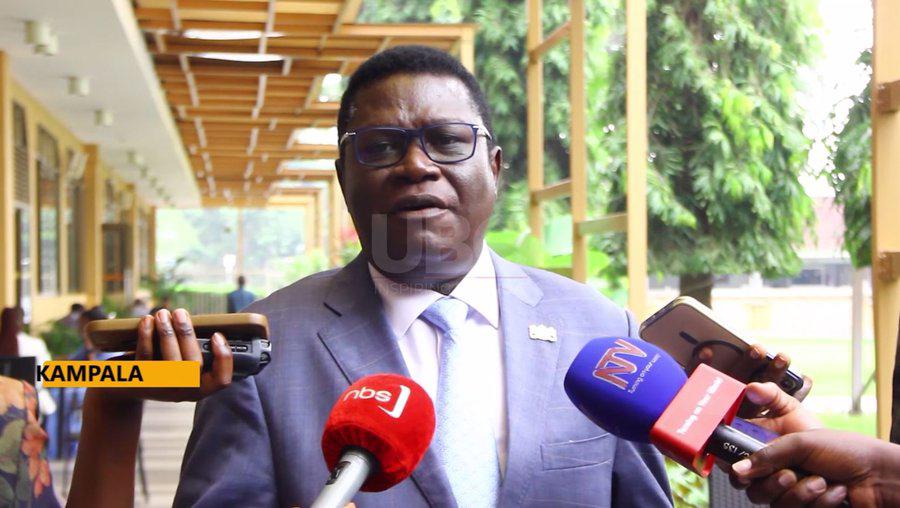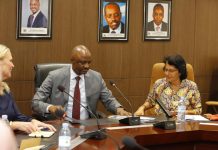By David Mwanje
KAMPALA– As Uganda gears up for its next electoral cycle, Minister of Justice and Constitutional Affairs Norbert Mao is spearheading a bold call for free, fair, and peaceful elections, urging stakeholders to tackle deep-rooted challenges like voter bribery, excessive force, and human rights violations. Speaking at a multi stakeholder dialogue convened by the Center for Constitutional Governance (CCG) and the East and Horn of Africa Election Observers Network (E-HORN), Mao laid out a vision for a stronger democratic process, emphasizing that “constitutional rights are non-negotiable.”
The dialogue, which brought together government officials, civil society, and security agencies, spotlighted four critical issues plaguing Uganda’s elections, as outlined by CCG’s Executive Director, Dr. Bireete Sarah: excessive use of security forces, commercialization of politics, human rights abuses, and lack of transparency. Mao seized the moment to address these concerns head-on, condemning the commercialization of politics that preys on vulnerable citizens. “We must fight poverty and empower citizens through civic education to value their vote,” he said, calling for government initiatives to improve living conditions and curb vote-buying.
Mao, a vocal advocate for responsible policing, challenged the Uganda Police Force to take the lead in securing elections, reserving military intervention as a last resort. “Our police and military excel in global peacekeeping missions, yet at home, they’re accused of violating rights,” he noted. “Polling stations should be secured by constables using the law, not weapons.” He also defended journalists’ rights to report without fear, stressing the need for honest conversations about security forces’ roles.
The dialogue wasn’t short on optimism. Mao highlighted the Electoral Commission’s (EC) increased budget and the introduction of biometric voter verification machines, which promise to enhance electoral integrity. “Citizens must demand everything necessary for a peaceful and credible election,” he urged, reinforcing hope for a transparent process.
Electoral Commission Spokesperson Julius Mucunguzi echoed Mao’s call for collective responsibility, noting ongoing efforts to train police commanders on their electoral roles. “Peace is the lowest common denominator,” he said, emphasizing that elections should not compromise Uganda’s stability as a regional peace hub hosting 1.7 million refugees. He urged all players political parties, media, candidates, and voters—to follow laws, avoid hate speech, and use technology responsibly to combat misinformation.
Uganda Human Rights Commission Chairperson Mariam Wangadya added a forward looking perspective, urging citizens to view elections as a tool for accountability. Reflecting on recent violence in the Karweny North by election, she stressed solutions over alarmism, advocating for better crowd control and human rights-focused policing. “The police should lead civilian processes, with the army as a last resort,” she said.
Dr. Bireete warned that without deliberate action, electoral violence could escalate. She proposed a code of conduct for security forces and emphasized empowering citizens to resist the commercialization of politics, which often exploits poverty. “Elections are a civic exercise, not a battleground,” she declared.
The dialogue’s call for civic education and responsible technology use aligns with global trends to combat misinformation, which has swayed elections worldwide. For Uganda, a regional leader hosting millions of refugees, peaceful elections reinforce its role as a beacon of stability in the East African Community.
As stakeholders come to a clear consensus, the commitment to collaboration and constitutional integrity signals hope for a stronger democracy. With biometric machines rolling out and a renewed focus on human rights, Uganda is poised to turn its electoral challenges into opportunities for progress.























